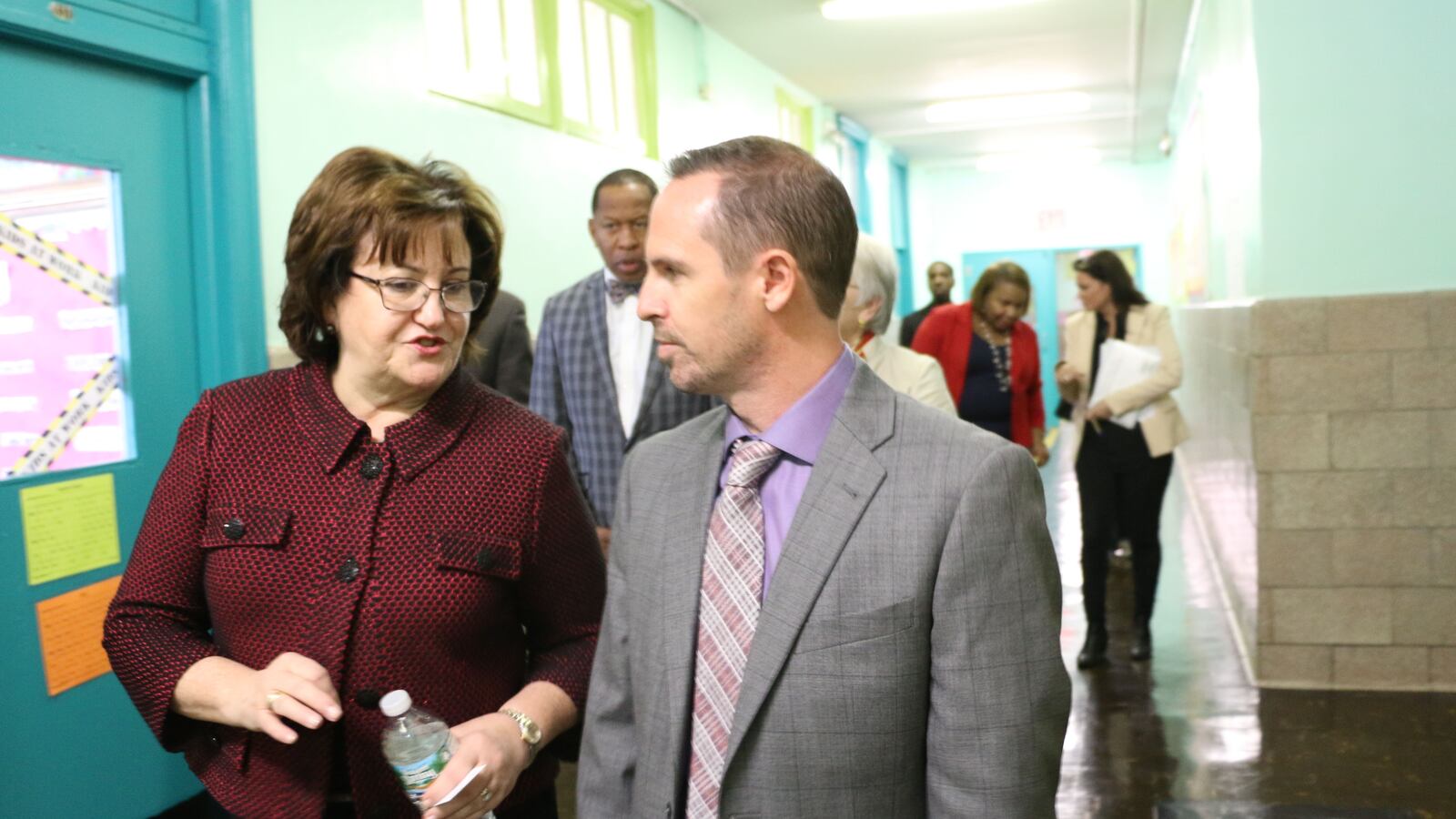New York City teachers may not have to share their classrooms with “independent observers,” after all.
Under new rules passed Monday, the city will be able to apply for a waiver that will allow it to bypass one of the most unpopular provisions of the state’s teacher evaluation law — the requirement that teachers and principals be evaluated by someone who doesn’t work at their school, starting in the 2016-17 school year. Union officials said the city is likely apply for one of the waivers.
“We hope that we and the DOE, together, will consider putting in an application for a waiver, so that any additional funds we may have spent can instead be sent back to the classroom,” said United Federation of Teachers President Michael Mulgrew.
Educators and district leaders have objected to prospect of the outside observers, since finding qualified people from outside a school is likely to pose a logistical challenge for districts. Others argue they will undermine principal autonomy and lack the understanding of each school environment necessary to fairly assess teachers.
The waivers don’t get rid of the observers entirely. Teachers who were rated “ineffective” this school year would still be required to have a classroom observation by an outside observer next year. (Only 1 percent of the city’s teachers earned the lowest rating last year, though.)
The move is a continuation of the Regents’ effort to effectively allow districts to ignore a 2015 law changing the rules for teacher evaluations. Last year, the Regents allowed districts to apply for waivers to postpone negotiating details of the evaluation systems. In December, they prohibited the use of grades 3-8 English and math state tests in the evaluations.
The new rules make it likely that New York City will qualify for a waiver. Districts can apply if they have a large number of teachers or principals, or if they can show that independent observers would cause them financial hardship. Chancellor Carmen Fariña warned last year that finding those observers would be costly.
“If you think about the requirements of this, large city districts, as well as some of our small cities, have incredible constraints,” State Commissioner MaryEllen Elia said.

